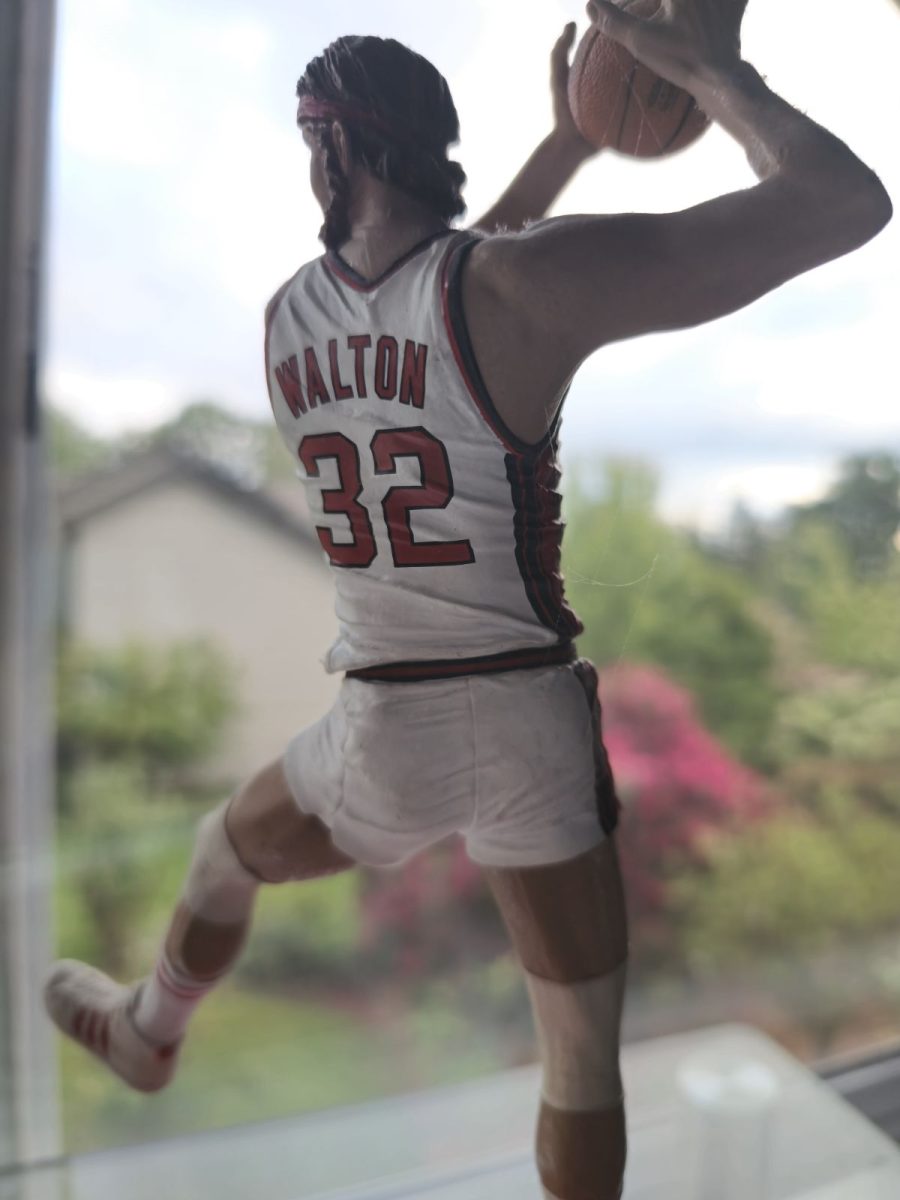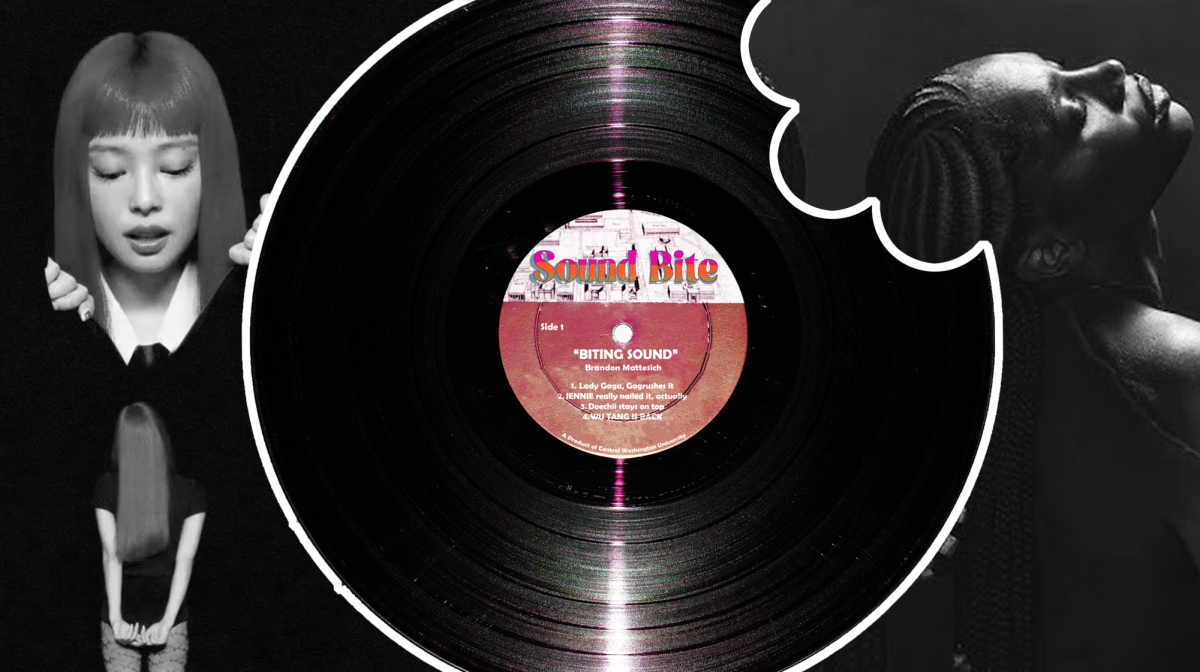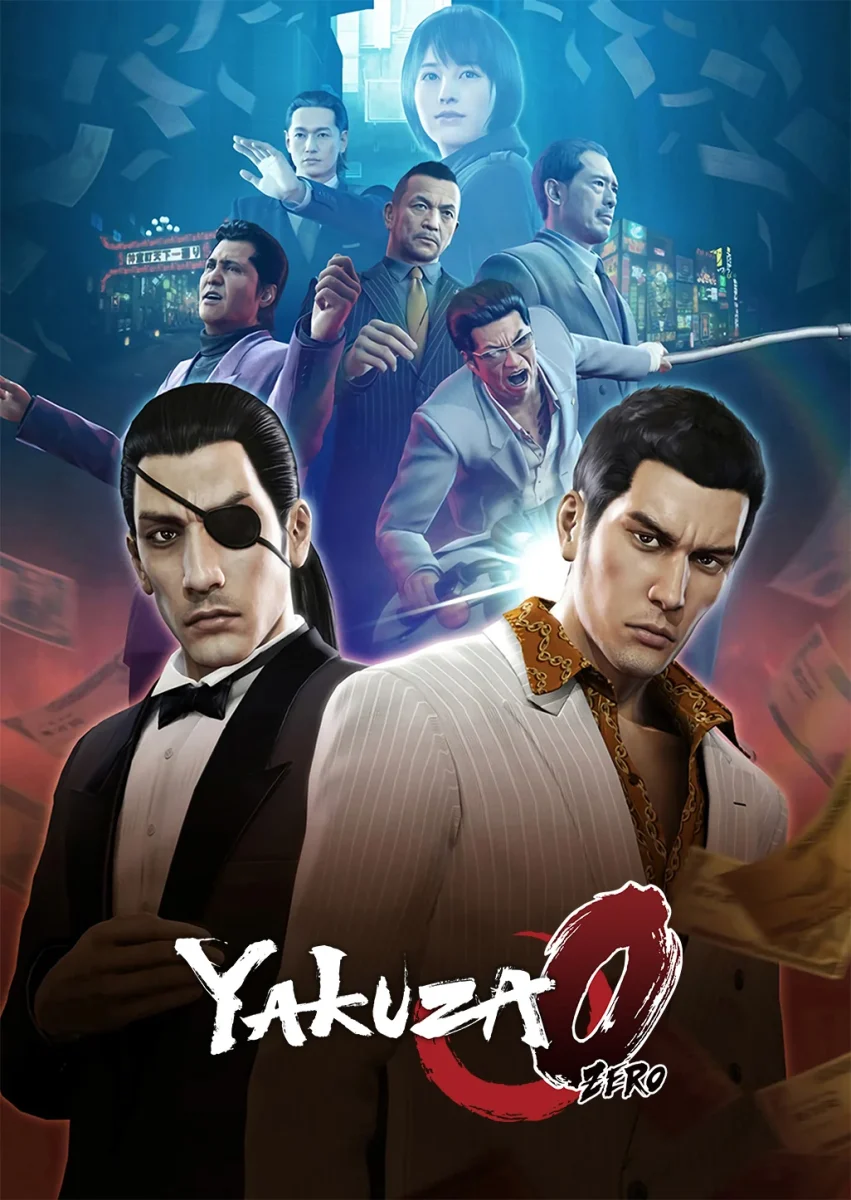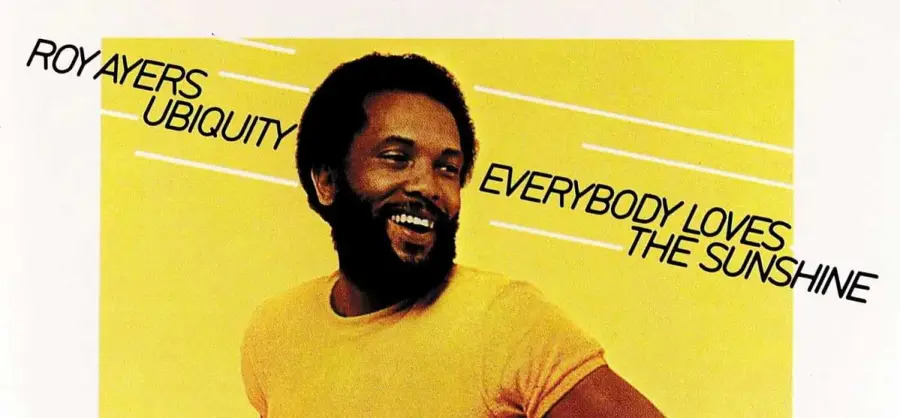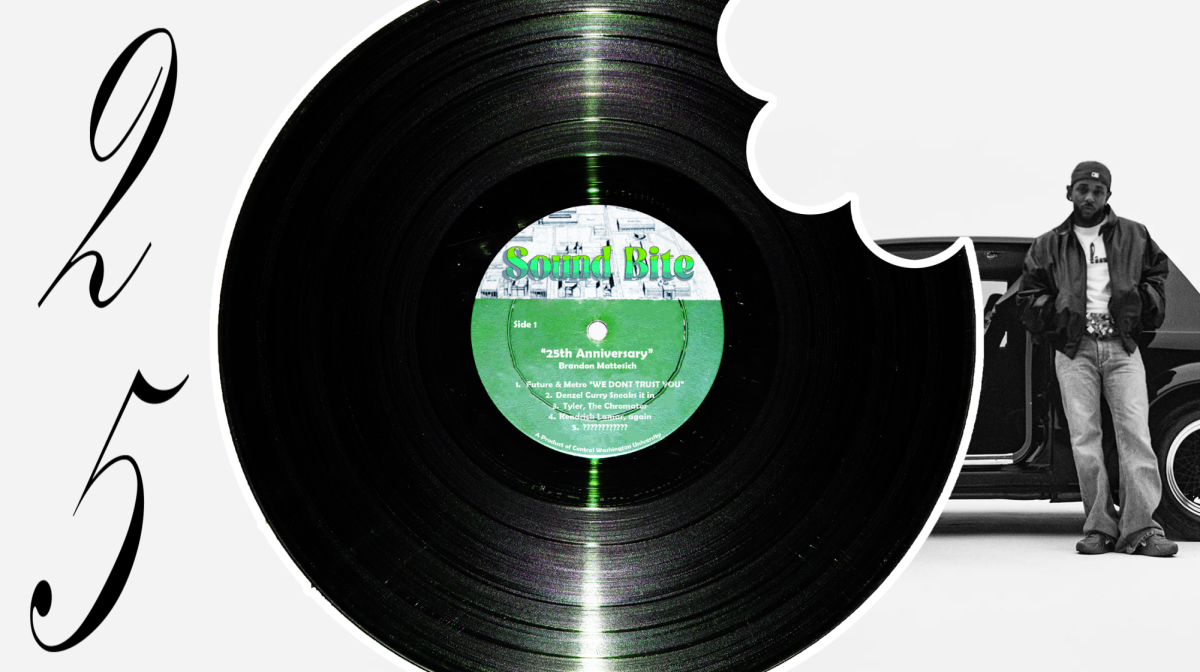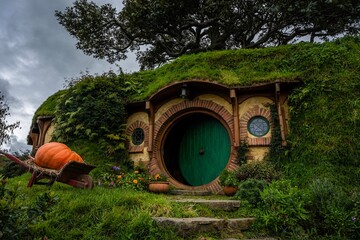Across my whole life, I have always been able to walk into my Dad’s bedroom and look at a plethora of Portland Trail Blazers memorabilia. From a small child to the young adult I am now. Jerseys, posters and figurines litter his room. One figure has always stood out, of a man in a vintage jersey, extremely short shorts and a headband, who was stanced to be about to throw down a nasty dunk.
On the morning of May 27, NBA reporter Adrian Wojnarowski reported “Hall of Fame center Bill Walton has died of cancer, the NBA says. He was 71.”
As a lifelong Portland Trail Blazers fan, Walton has existed almost as this cool, hippie uncle that I could run into turning a corner in Southeast Portland. His tie-die shirts, headbands, Grateful Dead fandom, incessant biking and rigorous hiking embodied, and continue to embody Portland.
Walton was a man who forever lived in the present. Never quick to worry too hard about the future, or linger too long on the past. Especially in his later life, Walton was a man of harmony. He enjoyed life for what it is, a gift.
Recently, Walton was a color-commentator for ESPN, covering the recently defunct PAC-12, and he specifically would provide insight on their men’s basketball games. His commentary was renowned for his (pun-intended) colorful tidbits, unpredictable tirades, hyper-specific references and Grateful Dead name-drops.
However, in his early life, Walton was one of the NBA’s pioneer centers, and is regarded as one of the best players of all time. A member of Naismith’s Basketball Hall of Fame, Walton is remembered by many for his two championships — one in 1977 with the Portland Trail Blazers, and the other in 1986 with the Boston Celtics — his Most Valuable Player (MVP) award in 1978 and his Sixth Man of the Year (6MOTY) award in 1986. Walton was the only player in league history to have won both awards until James Harden won MVP in 2018. Walton remains the only player in history to win MVP first, and 6MOTY second.
Walton’s basketball career began in California, where he grew up, with the University of California Los Angeles (UCLA) Bruins. While playing with UCLA, he won two national championships in 1972 and 1973, and was voted Final Four Most Outstanding Player both of those years as well. Walton’s legend at UCLA extends off the court as well.
Walton is cited as having interrupted classes, stopped traffic and participated in many protests and demonstrations to call for an end to the Vietnam war. His vocal support of his politics is one of his defining traits, and one of the reasons he is so beloved amongst the NBA and his fanbase. Walton ended up in jail at one point after being arrested at a protest that began on the UCLA campus and eventually made its way to the streets of Los Angeles, where Walton was arrested for lying in the road and blocking traffic. His coach, John Wooden, bailed him out.
He was always vocal. Whether in his protesting of the American government as a system, or of Richard Nixon, the star-spangled banner, the CIA, the prison-industrial complex and much more. Walton stood alone in his time as one of the few white athletes to take stances on issues like these.
Walton also stood alone then as the greatest sports legend of the Pacific Northwest. Before Russell Wilson and Shaun Alexander, before Shawn Kemp and Gary Payton, before Ichiro Suzuki and Felix Hernandez, before Damian Lillard and Clyde Drexler. Bill Walton was the first person to lead a professional sports team based in the PNW to a championship, earning the Portland Trail Blazers their first and only ring. Their only banner.
Walton’s career was one that was riddled with injuries. The Blazers have always been known as having a “big-man curse” where it just seems like the team’s big-men cannot put together long, healthy careers. Greg Oden, Jusuf Nurkić, Sam Bowie, Zach Collins. This trend began with Walton, who throughout his career dealt with numerous injuries, but a chronic broken left foot hampered him the most. He also experienced injuries to his neck, back, fingers, knees, wrists and toes throughout his playing-time, and only played 44% of possible regular season games. After years of mis-handling by the Blazers medical staff, Walton requested a trade in his fifth season and sat out the year in protest.
During his career with Portland, Walton averaged 17.1 points per game, 13.5 rebounds per game, 4.4 assists per game, 2.6 blocks per game and 1.0 steals per game. He shot 51.0% from the field.
The best part? Walton remained in and around the PNW until his passing. After leaving the city to play for the Los Angeles Clippers and the Boston Celtics in the late years of his career, Walton returned to Portland in 2009, expressing his deep regret for how his exit was handled. Go online and you can see dozens upon dozens of photos of Walton biking, hiking and existing in Portland and the forests of Oregon. Walton is an icon, a giant, a pillar, a legend of the PNW. He was a pioneer for sports up here in the trees, paving the way for people to see that you can win championships here. He will be remembered forever by me. Rest peacefully, Bill.


